We achieved notable milestones in 2024, including driving impactful research and convening initiatives and expanding our media presence in Taiwan and worldwide.

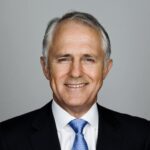

2024 marked a new chapter at the Center for Asia Pacific Resilience and Innovation. Firmly established as a leading center for public policy research in the region, this past year has been one of new research, partnerships, and recognition.
CAPRI organized and engaged in pivotal policy discussions in collaboration with universities, think tanks, and NGOs across the Asia Pacific, Europe, and North America, earning praise for its role as a platform for regional expertise. Our expansion into the US through the establishment of CAPRI USA has driven engagement across the globe at a time of considerable change. In this year of elections, CAPRI and CAPRI USA played a crucial role in informing public discourse in Taiwan and the US, offering expert analysis, both before and after the votes, on the outcomes and their implications for the region.
Through cross-sector events, interdisciplinary research, and global partnerships, we have brought critical policy issues to the global stage. This year, our work on the resilience of health systems in Malaysia, South Korea, Taiwan, the Marshall Islands, Tonga, and Vanuatu underscored the need for innovative policymaking and collaboration. Our research into vaccine hesitancy in Japan, Taiwan, and Vietnam emphasized the leading role of communications strategies in implementing effective policy. We have hosted many conversations among experts and policymakers ranging from the impact of culture and technology on innovation to exploring the factors affecting talent cultivation, women’s empowerment, and democratic resilience. These dialogues have helped highlight not only the complexity of the challenges facing the region but also actionable solutions.
CAPRI continues to champion a broad, multidimensional view of resilience, with a focus on sustainability and innovation across the region. This will involve bringing together policymakers, industry leaders, and scholars to share their perspectives on the interconnected challenges of economic dynamism, health resilience, environmental sustainability, and technological transformation. Resilience is not a destination but a continuous journey of adaptation and learning, a journey CAPRI is uniquely placed to facilitate through its ongoing commitment to breaking down silos of public discourse.
On May 12, 2025, we will showcase our commitment to promoting resilience and sustainability at our third Annual Forum, continuing our tradition of bringing together distinguished global leaders, policymakers, industry pioneers, and innovators to address the needs across the region, and we invite you to join us in person in Taipei, or online.
We are grateful for the unwavering support of the members of our Board and International Advisory Council, our supporters, senior fellows, and our ever-growing network of partners. With the dedication of our exceptional team, CAPRI will continue to serve as a hub for innovative ideas and a platform for impactful change.
With your continued support for our work and dedication to our mission, we are confident that CAPRI will play a vital role in shaping a more resilient and sustainable future by bringing the Asia Pacific experience to the world.
In today’s interconnected world, building the resilience of societies against global disruptions demands engaging the public, private, and academic sectors across national borders. CAPRI views resilience as the capacity to not merely withstand shocks but to adapt dynamically and learn from them, creating a more robust and innovative society.
CAPRI explores resilience through comparative policy research, providing tailored policy recommendations and enabling policymakers across countries to learn from one another’s successes and challenges. Through our research, we promote multisectoral collaboration and engagement among diverse stakeholders.
Fostering innovation and building resilience are most successful when local experiences are shared regionally with stakeholders facing real-world challenges. CAPRI aims to equip current and future policymakers in the Asia Pacific with insights to not just survive in uncertainty, but thrive.
Vaccine hesitancy has existed ever since the very first vaccines, but in this hyper-digital era, vaccine information—both true and misleading—can spread faster than ever. CAPRI is exploring how countries across the Asia Pacific experience vaccine hesitancy, examining historical and cultural factors as well as the heightened challenges of communicating health policy during a crisis, such as the COVID-19 pandemic.
In 2024, CAPRI Senior Fellows Shuhei Nomura and Yen Pottinger and Senior Research Associate Christine Cook focused on these challenges in Japan, Vietnam, and Taiwan, examining the role of misinformation and disinformation in shaping attitudes and behaviors toward vaccination in this region.
The three contributors presented their findings at a roundtable discussion with experts in policy communication and public health from civil society, media, and government. The conversation highlighted the social and media factors of vaccine hesitancy, and the discussants agreed that good policy must be communicated effectively, such as using culturally tailored and context-specific information campaigns, to maintain trust in health authorities.
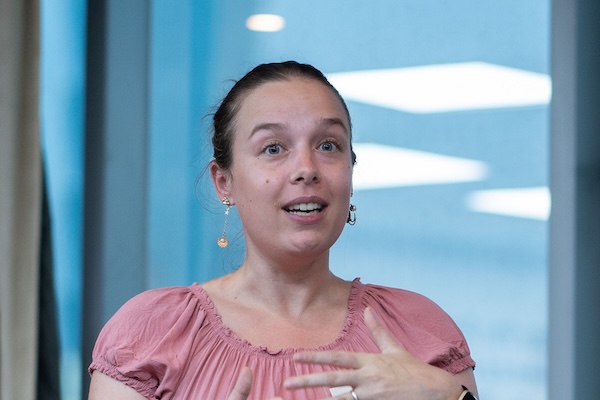
Christine Cook
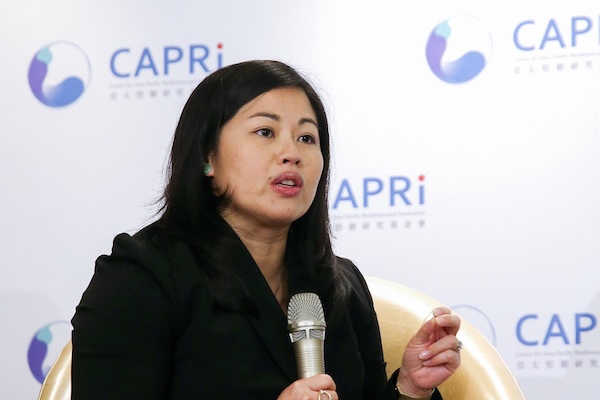
Yen Pottinger
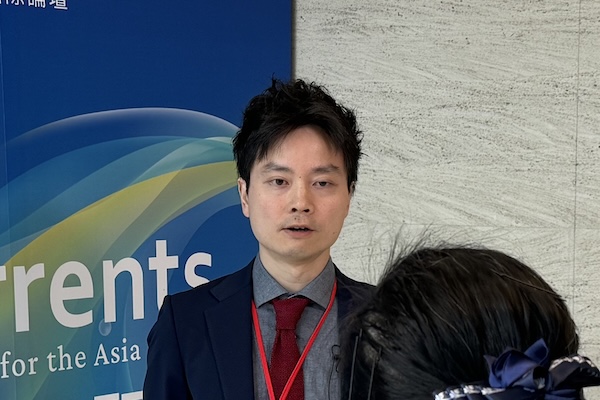
Shuhei Nomura
CAPRI is a founding member and the Asia-Pacific hub of the World Economic Forum’s Partnership for Health System Sustainability and Resilience (PHSSR). In 2024, we published reports identifying challenges to Asia-Pacific health systems, focusing on Malaysia, the Republic of Korea, Taiwan, and the Pacific Island countries of the Marshall Islands, Tonga, and Vanuatu. Authored by CAPRI senior fellows, the reports highlight prevailing challenges in governance, financing, and workforce management, and they offer policy recommendations for long-term stability and adaptability. CAPRI compiled the country-level findings into a summary report, which identifies common challenges to health systems across the region and highlights measures that countries are taking to overcome them.
Each report is used to engage with policymakers and stakeholders across academia, the private sector, and government. These engagements jumpstart meaningful discourse on strengthening the region’s health systems as the world continues to recover from the COVID-19 pandemic.
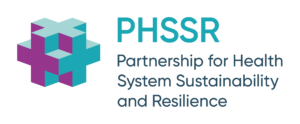
Turning research into action is central to CAPRI’s role in PHSSR. In January, we presented key findings from the four country reports at the Prince Mahidol Award Conference (PMAC) in Bangkok.
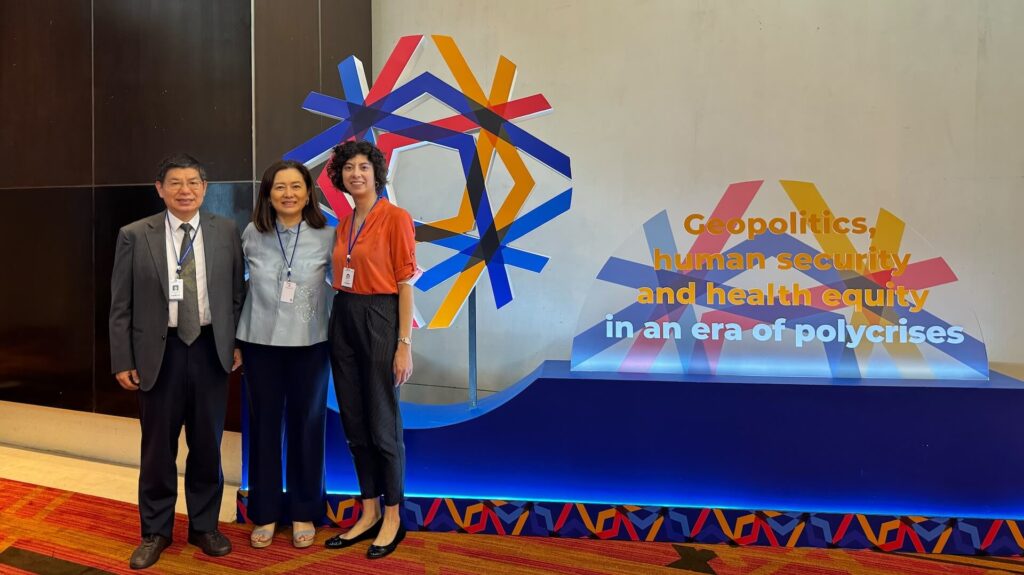
CAPRI Representatives at PMAC in Bangkok, January 25–26, 2024. From left: Chang-Chuan Chan, Syaru Shirley Lin, and Caroline Fried
In summer, we invited Taiwanese Deputy Minister of Health and Welfare Jih-Haw Chou, Health Promotion Administration Deputy Director-General Shi-Lun Wei, and leaders from the WHO Foundation and World Economic Forum to PHSSR’s annual dinner on the sidelines of the World Health Assembly in Geneva. We also presented the Taiwan report to Minister of Health Tai-Yuan Chiu, National Health Insurance Administration Director General Chung-Liang Shih, and major party legislators.
In autumn, the Malaysia report was launched at a British Malaysian Chamber of Commerce event in Kuala Lumpur. Report co-author Esther Pei Wei Chua outlined recommendations to Malaysia’s Ministry of Health and other policymakers, emphasizing the need for stronger community care financing, technological integration, and data-driven health planning.
Finally, the Pacific Islands report was launched in collaboration with CAPRI Senior Fellow Collin Tukuitonga and the University of Auckland. Speakers included Malcolm Turnbull, Tonga Minister of Health Siale ’Akau’ola, Basil Leodoro, Emi Chutaro, Eileen Natuzzi, and Sir Ashley Bloomfield. Taiwan’s Representative to New Zealand Joanne Ou also attended. Malcolm Turnbull called the report “a call to action for governments, NGOs, and the private sector to collaborate.”
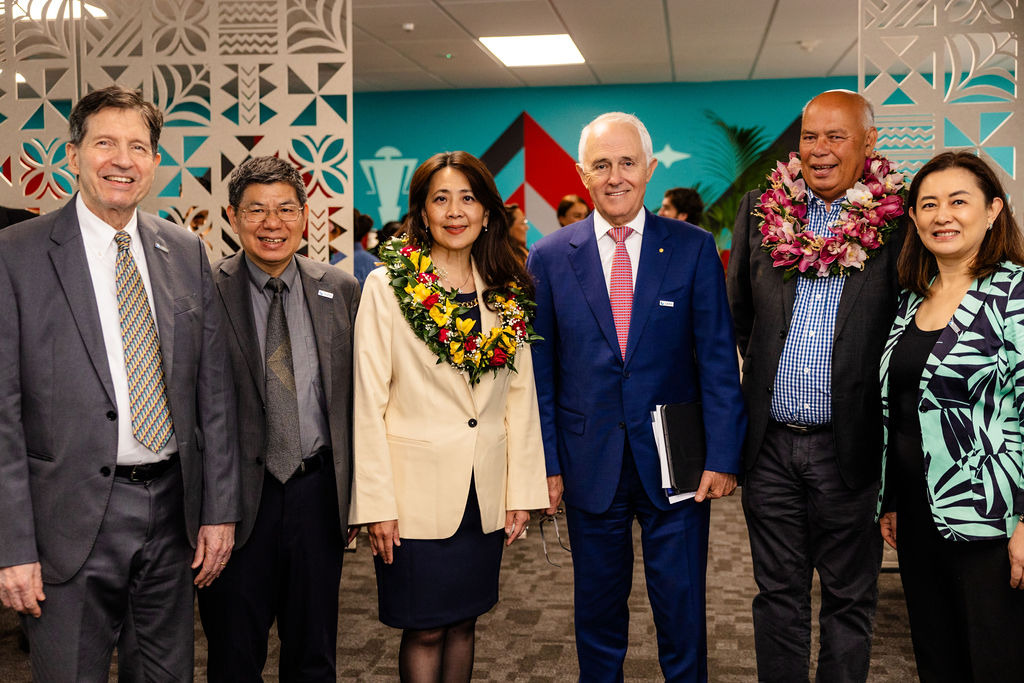
From left: Harry Harding, Chang-chuan Chan, Joanne Ou, Malcolm Turnbull, Syaru Shirley Lin, and Collin Tukuitonga
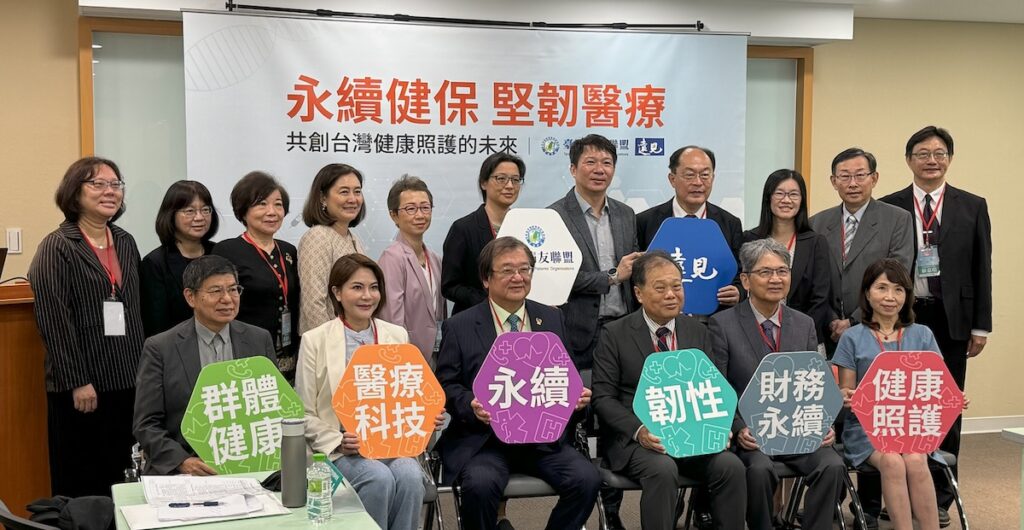
Syaru Shirley Lin (back row, fourth from left) and Chang-chuan Chan (front row, far left) discussed challenges facing Taiwan’s health system with Minister of Health Tai-Yuan Chiu (front row, third from left) and hospital and patient group representatives, August 2, 2024.
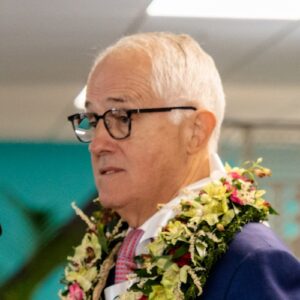
Dr. Thomas Fingar, former Chairman of the U.S. National Intelligence Council, presented the nuances of working in intelligence analysis, particularly in organizing many data points into useful insights for policymakers. He emphasized the need for international cooperation to address the world’s “wicked problems,” such as epidemics, wars, and climate change. Co-hosted with the Ministry of Education’s Yushan Scholar Program and Nation Chengchi University’s College of Social Sciences, this forum drew over 100 attendees, including diplomats, business representatives, scholars, and students.
Dr. Thomas Fingar, former Chairman of the U.S. National Intelligence Council, presented the nuances of working in intelligence analysis, particularly in organizing many data points into useful insights for policymakers. He emphasized the need for international cooperation to address the world’s “wicked problems,” such as epidemics, wars, and climate change. Co-hosted with the Ministry of Education’s Yushan Scholar Program and Nation Chengchi University’s College of Social Sciences, this forum drew over 100 attendees, including diplomats, business representatives, scholars, and students.
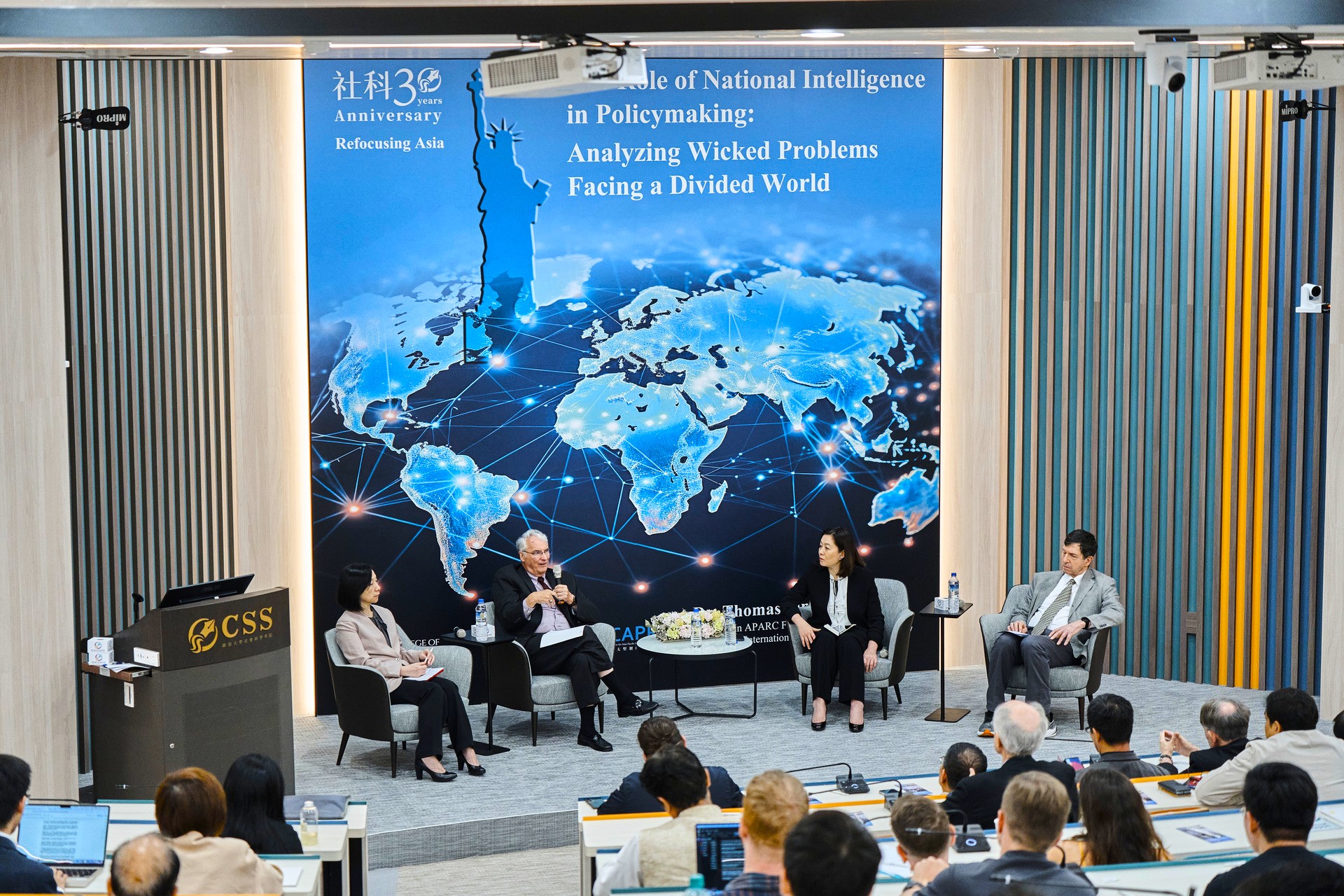
CAPRI Roundtables is a closed-door series exploring critical policy topics in the Asia Pacific. Dr. Thomas Fingar, Stanford professor and former Chairman of the U.S. National Intelligence Council, engaged with Taiwanese policymakers and think tank leaders, offering perspectives on the role of nonpartisan analysis in informing policy decisions.
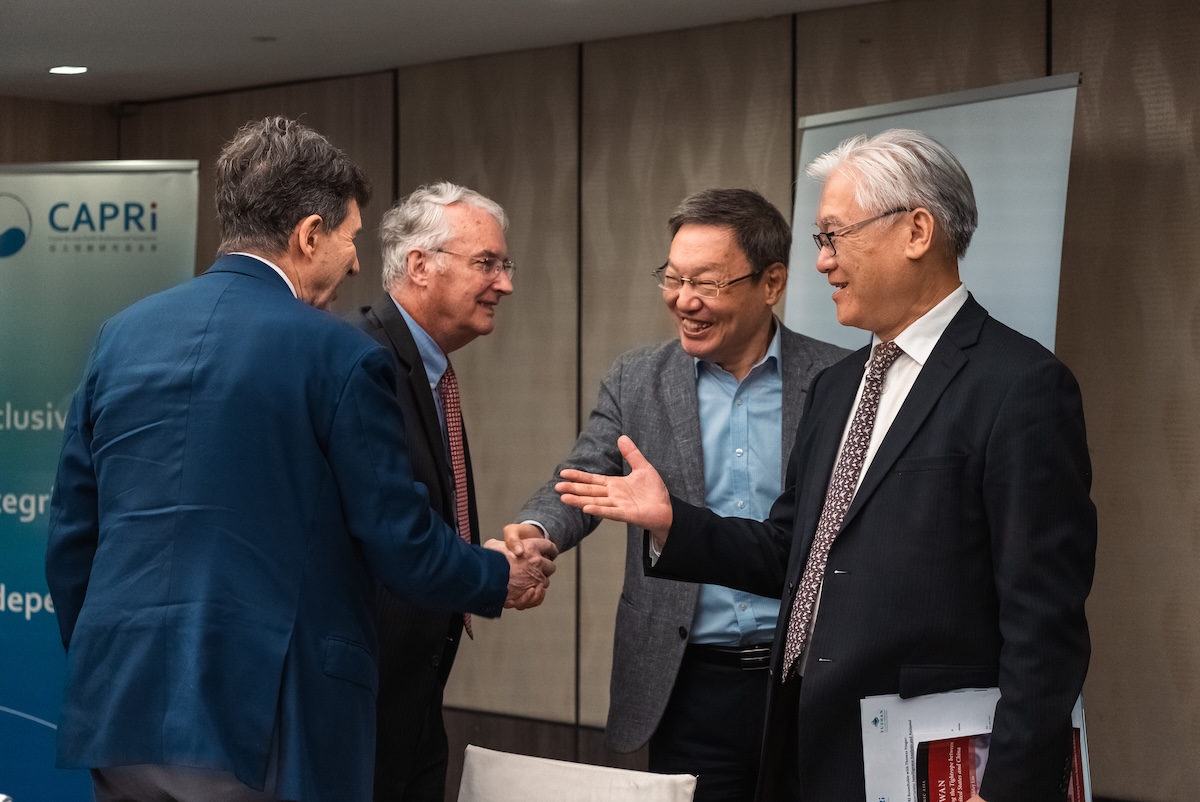
Harry Harding, Thomas Fingar, Su Chi, and Andrew Hsia at the first CAPRI Roundtable, June 5, 2024
Renowned China watcher, journalist, and prolific writer Orville Schell recounted his personal journey and the inspiration behind his first novel, My Old Home. Director of the Center on U.S.-China Relations at Asia Society, Prof. Schell reflected on how history shapes contemporary China and how fiction can serve as a lens to understand societal resilience in times of political and cultural upheaval.
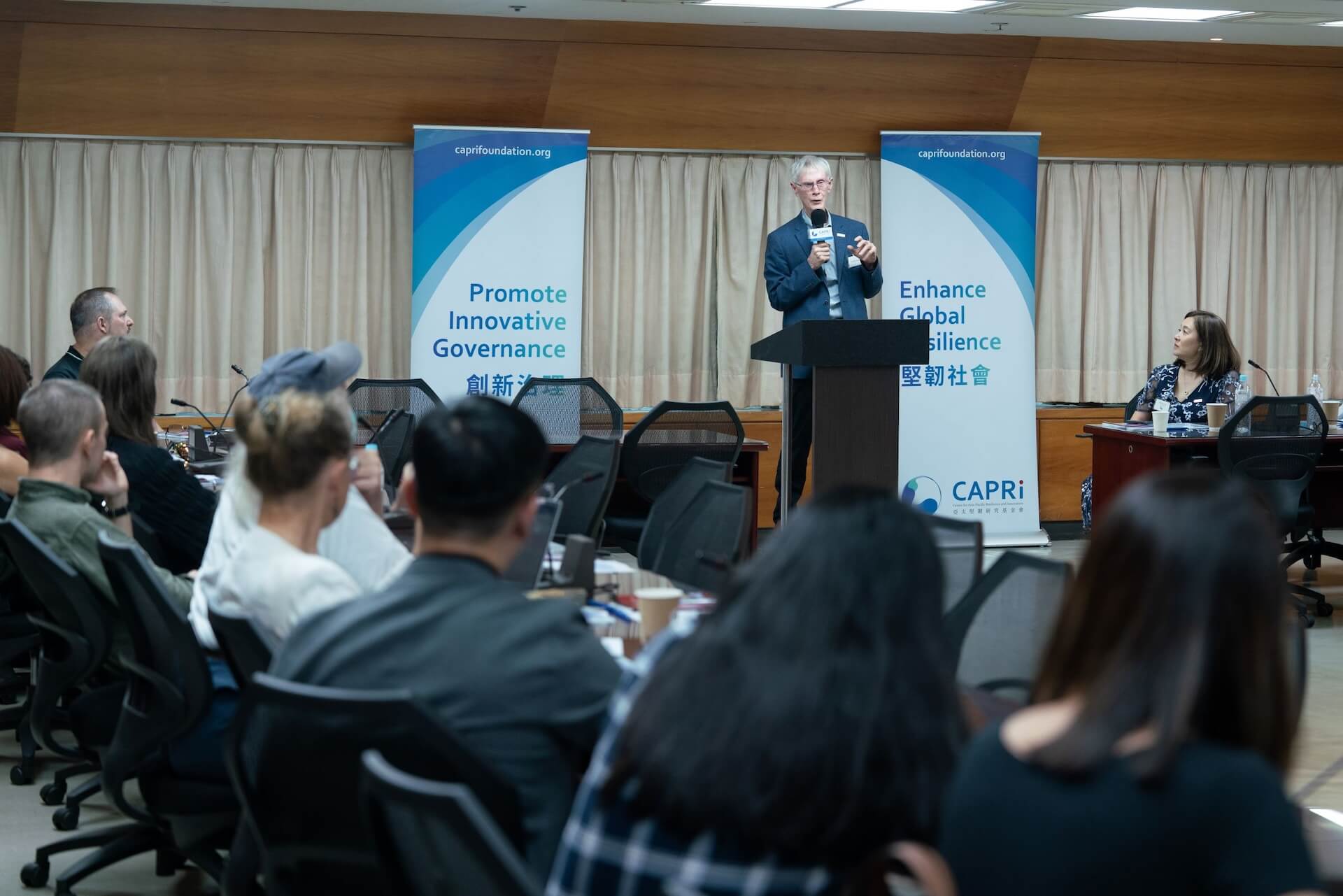
Prof. Harry Harding, CAPRI board member and Yushan Scholar, examined the enduring impacts of some of history’s most powerful empires—Rome, Britain, Russia, and China—on modern cultures, politics, and social structures. From architectural styles to sports, Prof. Harding highlighted both the formal and informal imperial imprints that persist to this day , demonstrating how historical influence continues to shape societies and their institutions.
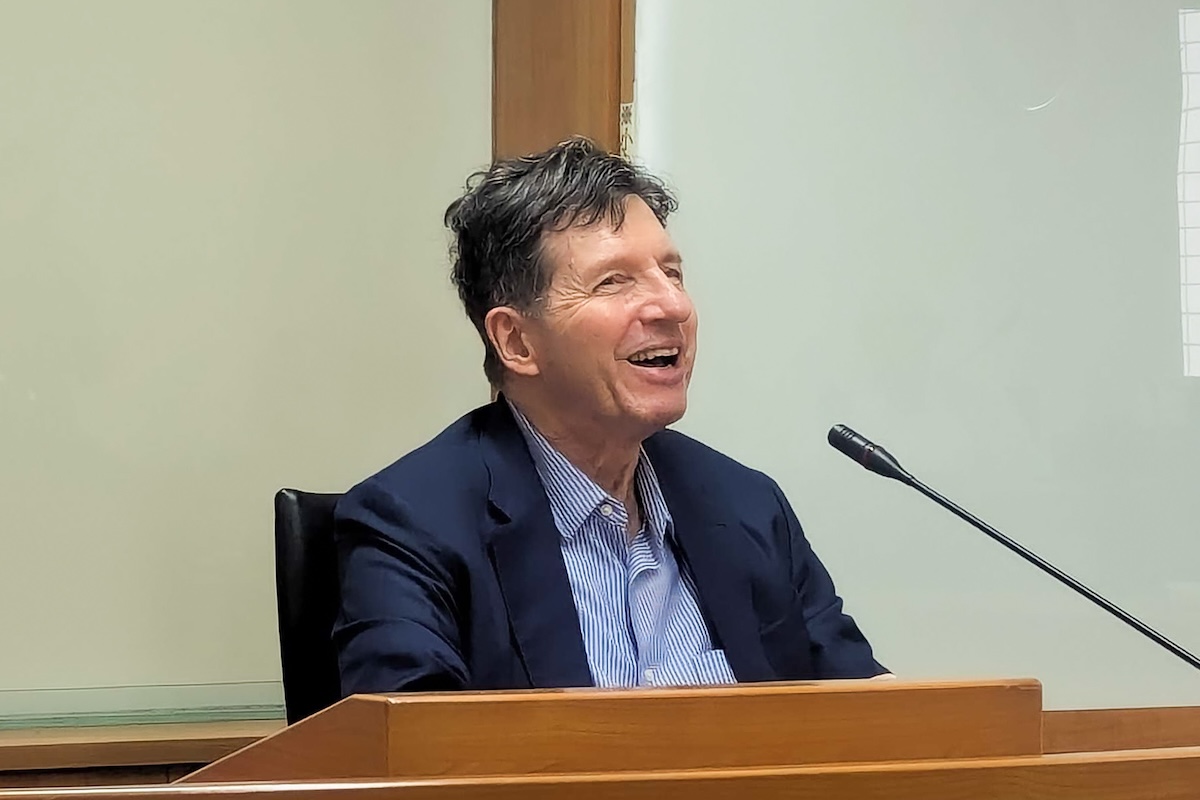
Prof. Aurel Croissant, Professor of Political Science at Heidelberg University and CAPRI Senior Fellow, visited CAPRI to discuss democratic resilience as authoritarianism rises across the Asia Pacific. His analysis focused on vulnerabilities in democracies and the importance of safeguarding democratic institutions. Prof. Croissant recommended bolstering civil society, ensuring media freedom, and enhancing regional cooperation.
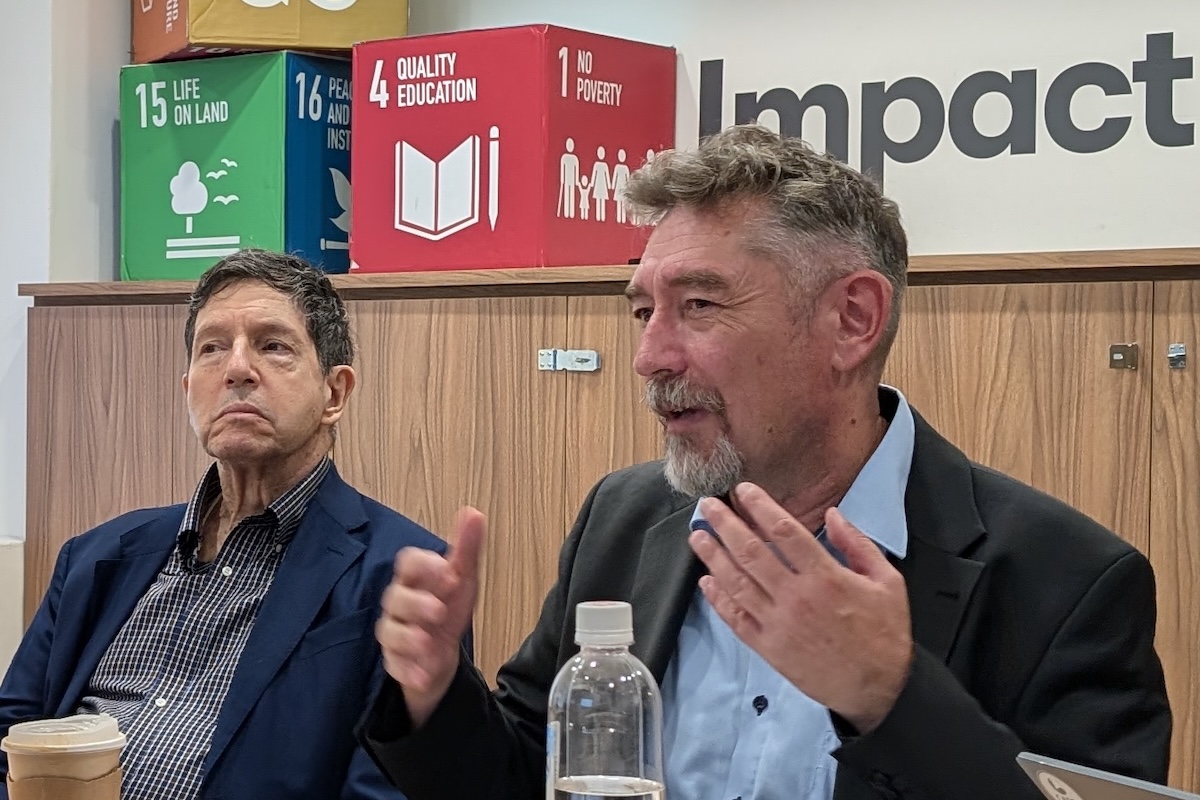
Prof. Joseph Wong, political scientist and Vice President, International at the University of Toronto, led a discussion on the resilience of the Asia-Pacific political economies. Without sustained development fueled by innovation, democratic regimes can succumb to polarization and instability. For the developed but smaller economies in the Asia Pacific, continued resilience will require high-stakes investments and international talent.
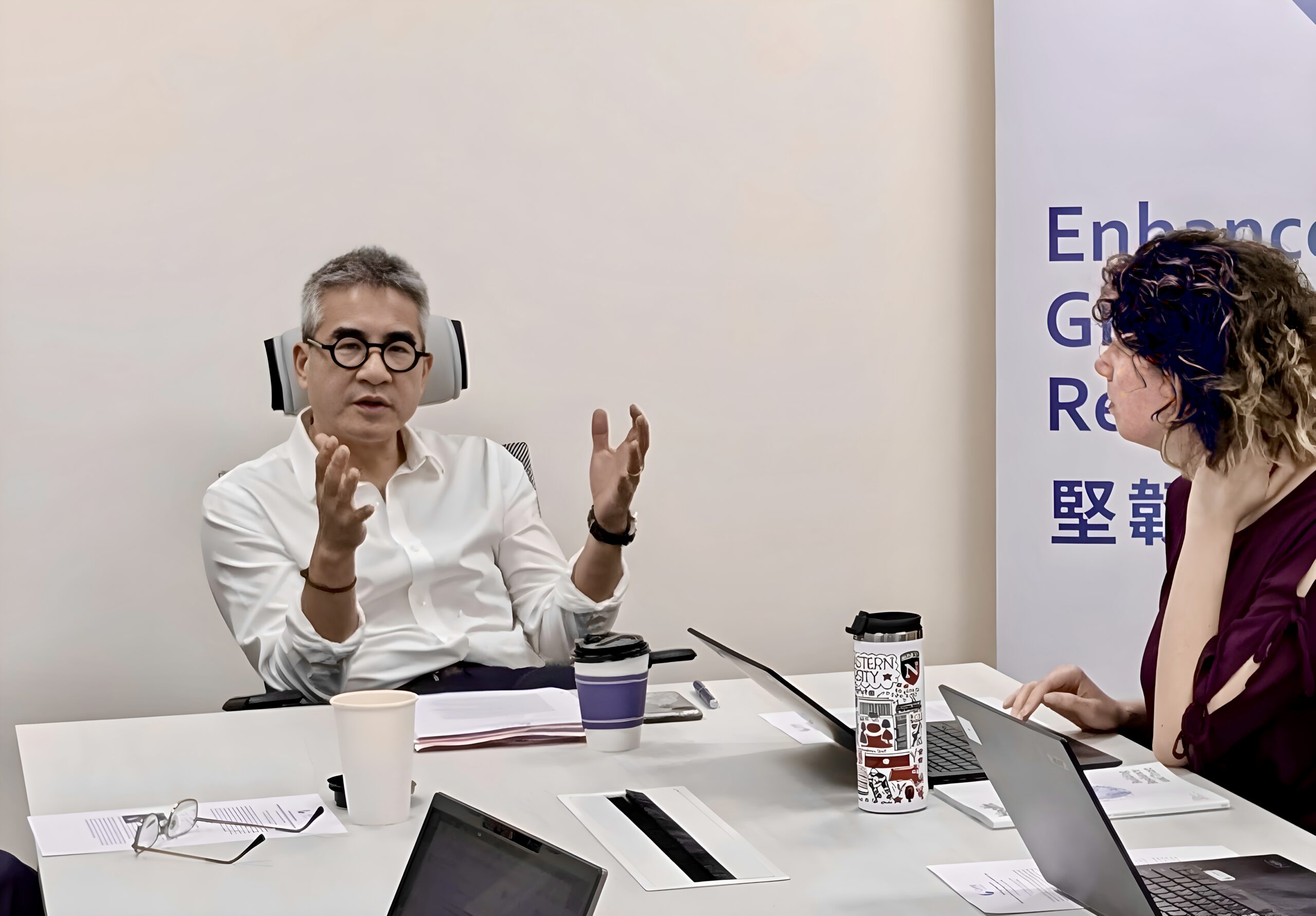
The CAPRI team, alongside friends and family, joined the 22nd Taiwan Pride, Asia’s largest LGBTQIA+ celebration, which drew over 180,000 participants. Reflecting our long-standing commitment to inclusivity, CAPRI marched alongside advocates and allies in support of equality and diversity.
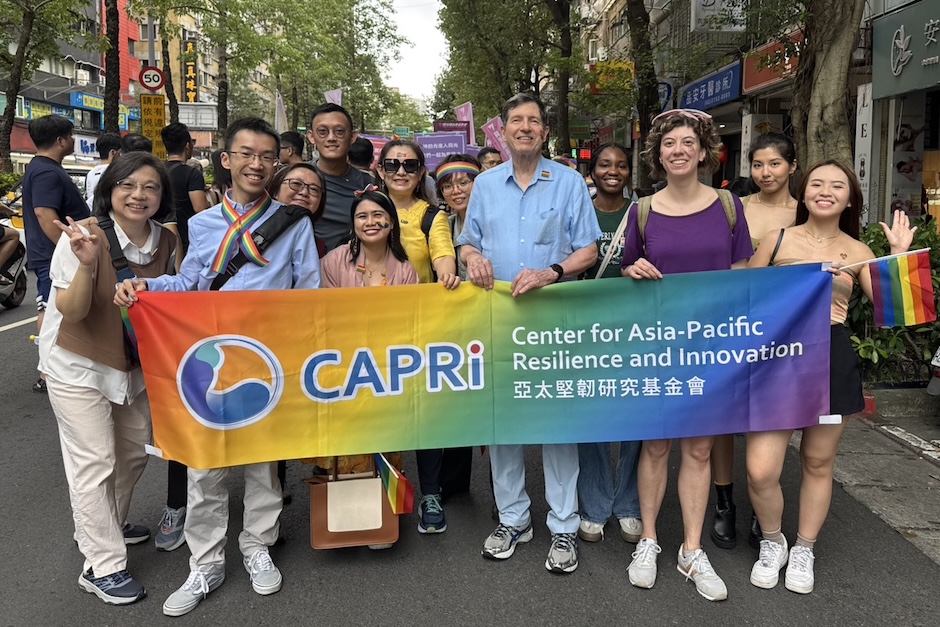
CAPRI partnered with the Asia Pacific Foundation of Canada’s Canadian Women-only Business Mission to Taiwan and their forum on gender-inclusive futures, which brought together speakers from public, private, and academic sectors. Syaru Shirley Lin participated in a panel on “Inclusive Leadership Driving Gender Economic Advancement” with Taiwanese and Canadian women leaders.

Dr. Vic Li, lecturer at the School of East Asian Studies at the University of Sheffield, explored different policy approaches to the green transition. He examined how governments and industries balance environmental sustainability with economic growth, looking at strategies used at both local and national levels. Using Taiwan as a case study, he highlighted the challenge of managing three key priorities—clean energy, energy security, and economic growth—or the “energy trilemma” in the Asia Pacific.
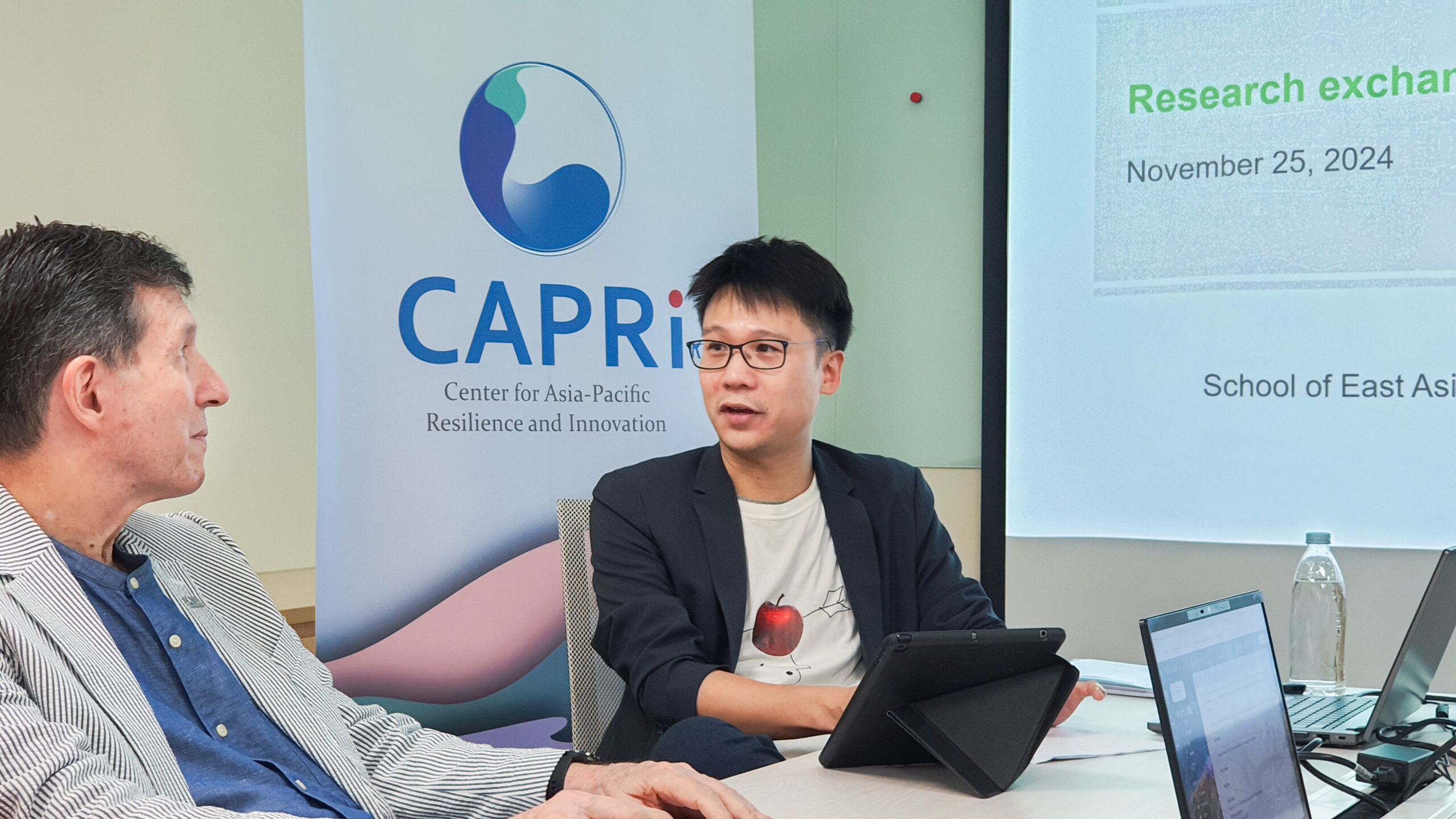
Stan Shih, founder and honorary chairman of Acer Group and a CAPRI board member, shared his vision for Taiwan’s future in a globalized, tech-driven world. A leader in Taiwan’s technological revolution, he introduced his “Wangdao” philosophy, blending ancient Chinese principles with modern leadership. Mr. Shih’s discussion highlighted the importance of talent cultivation as a key component of navigating the US–China strategic competition. By uniting technology with culture, Taiwan can lead in innovation while maintaining its rich cultural identity.
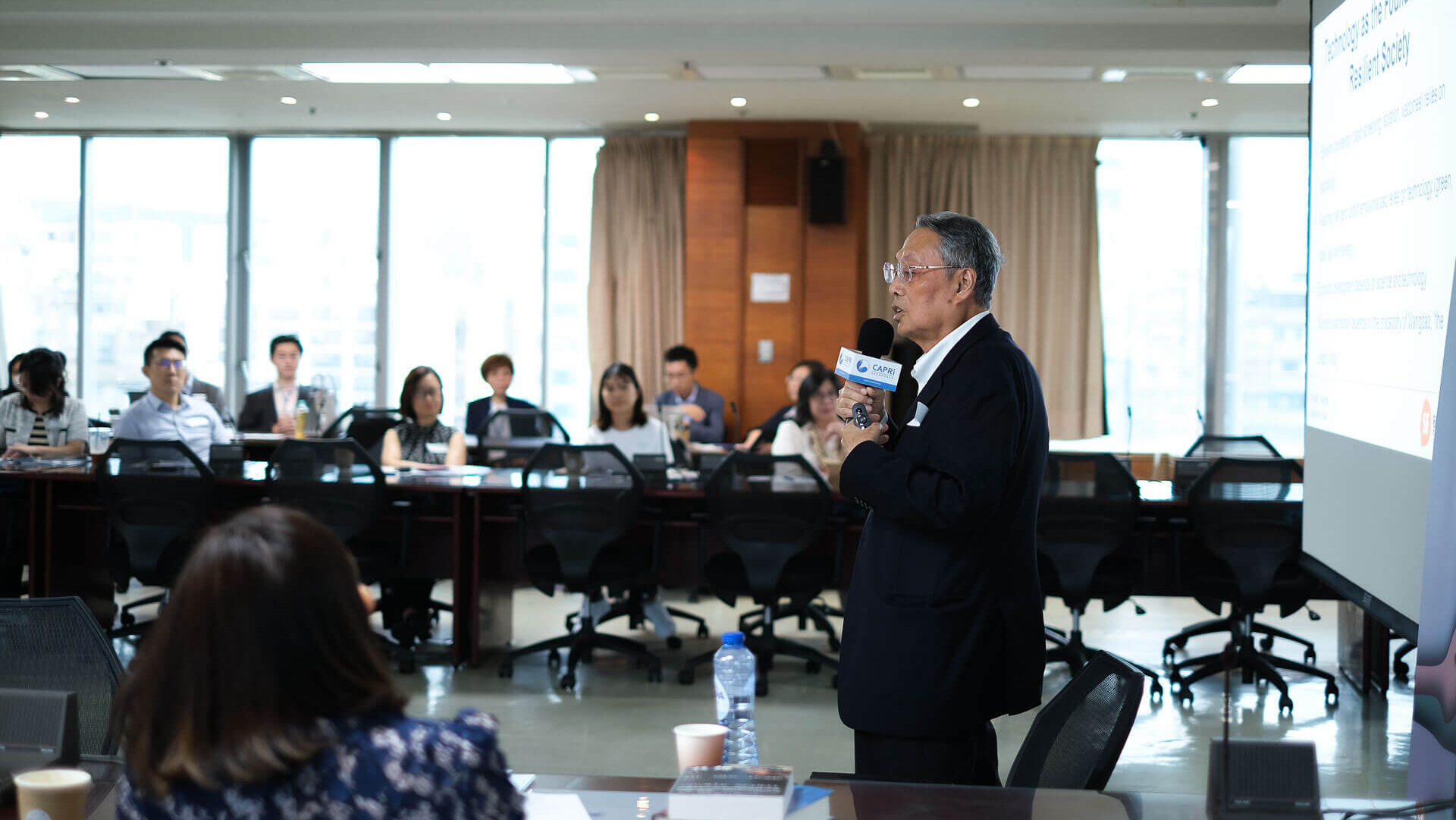
CAPRI Associate Kirsten Lianne Mae Dedase analyzed the importance of cross-border collaboration in enhancing disaster resilience. Comparing the experiences of Taiwan and the Philippines, she emphasized the value of knowledge sharing and innovation in preparing for and responding to disasters, underlining how lessons learned from different contexts can enhance overall resilience.

Steven Pan, CAPRI supporter and chairman of Silks Hotel Group, shared the compelling story of how the Silks Place Taroko transformed itself into a sanctuary in the aftermath of the 7.4-magnitude earthquake that struck Hualien, Taiwan, on April 3, 2024. The hotel staff ensured all 319 stranded guests were safe and able to contact their loved ones. This experience underscored the importance of community spirit when disaster strikes and turning challenges into opportunities for resilience.
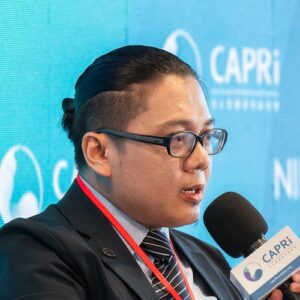
Political economist and respected educator Prof. Meredith Jung-En Woo highlighted the critical role of universities in economic development and societal progress. Drawing from her experience as president of Sweet Briar College, CAPRI Senior Fellow Prof. Woo stressed that universities must create knowledge and real-world impact. Collaborating with industry will enable them to meet the demands of local community while staying competitive, she noted, citing her role as an advisor at Arizona State University, which partners with Taiwan Semiconductor Manufacturing Company (TSMC) for student support, recruitment, and faculty research.
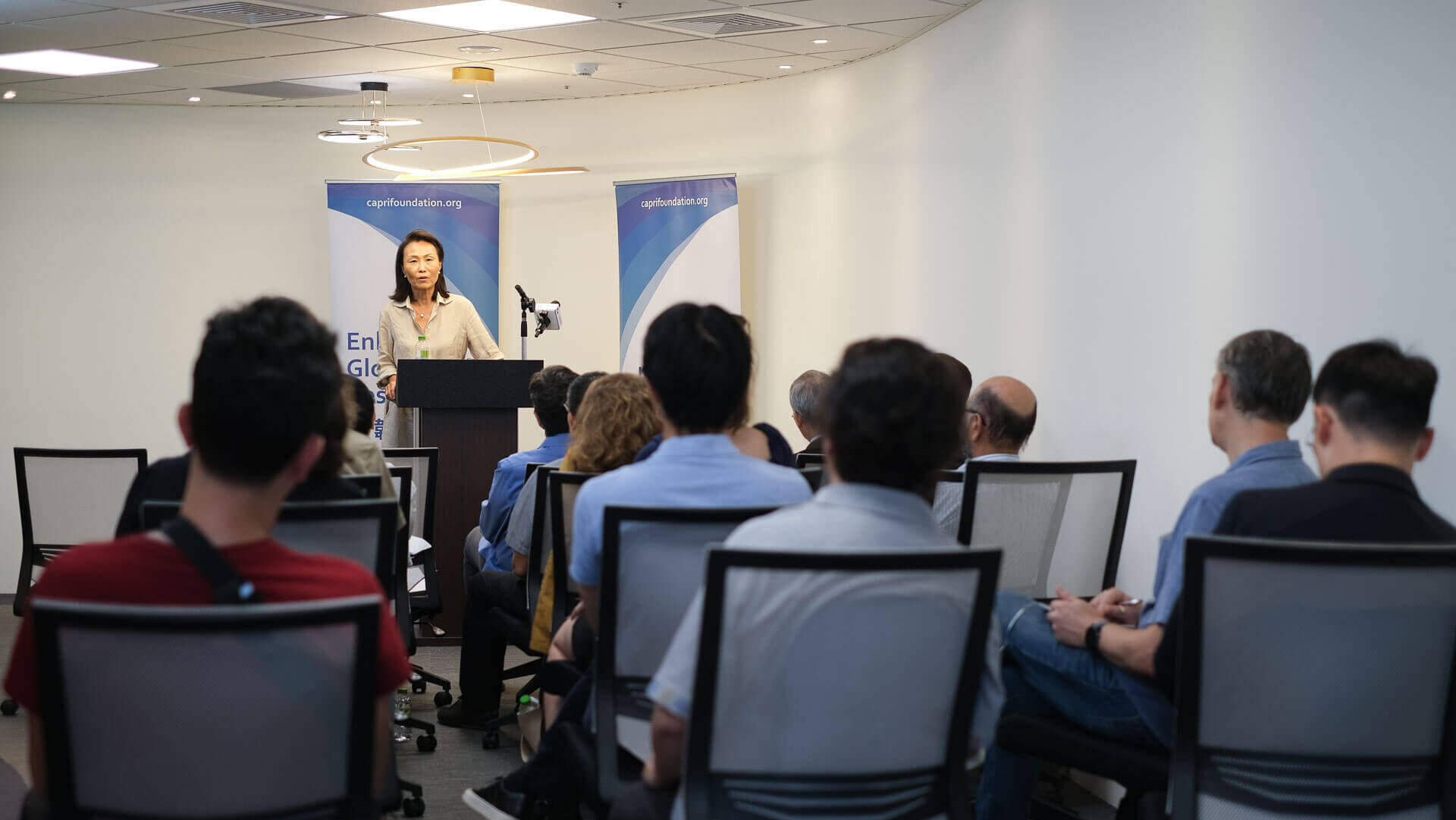
Prof. Thomas B. Gold from UC Berkeley Sociology and Prof. Ian Rowen from National Taiwan Normal University visited CAPRI for discussions on a a wide range of topics including Taiwan’s democratization, state–society interactions, and the challenges of higher education and internationalization on the island.
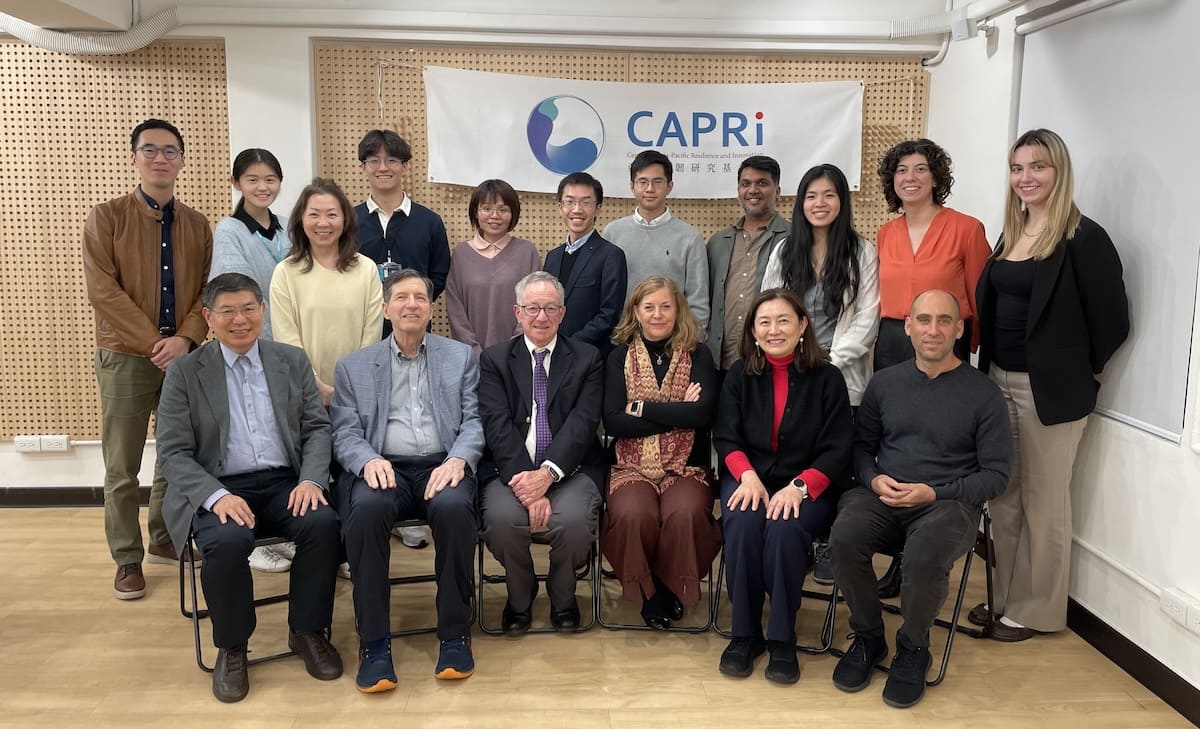
CAPRI board members and staff with Profs. Thomas Gold and Ian Rowen at NPO Hub, January 8, 2024 Bottom row, seated, from left: Chang-chaun Chan, Harry Harding, Thomas Gold, Alicia Garcia Herrero, Syaru Shirley Lin, and Ian Rowen.
Prof. Wei Shyy, former President of the Hong Kong University of Science and Technology and a member of CAPRI’s International Advisory Council, highlighted the importance of universities in addressing the major social challenges of our time.
Following his talk, Prof. Shyy was joined by Daniel M. Tsai, Chairman of Fubon Group and member of CAPRI’s International Advisory Council, and President Wen-chang Chen of National Taiwan University to discuss the resilience of today’s youth and the challenge of developing sustainable talent in Taiwan.
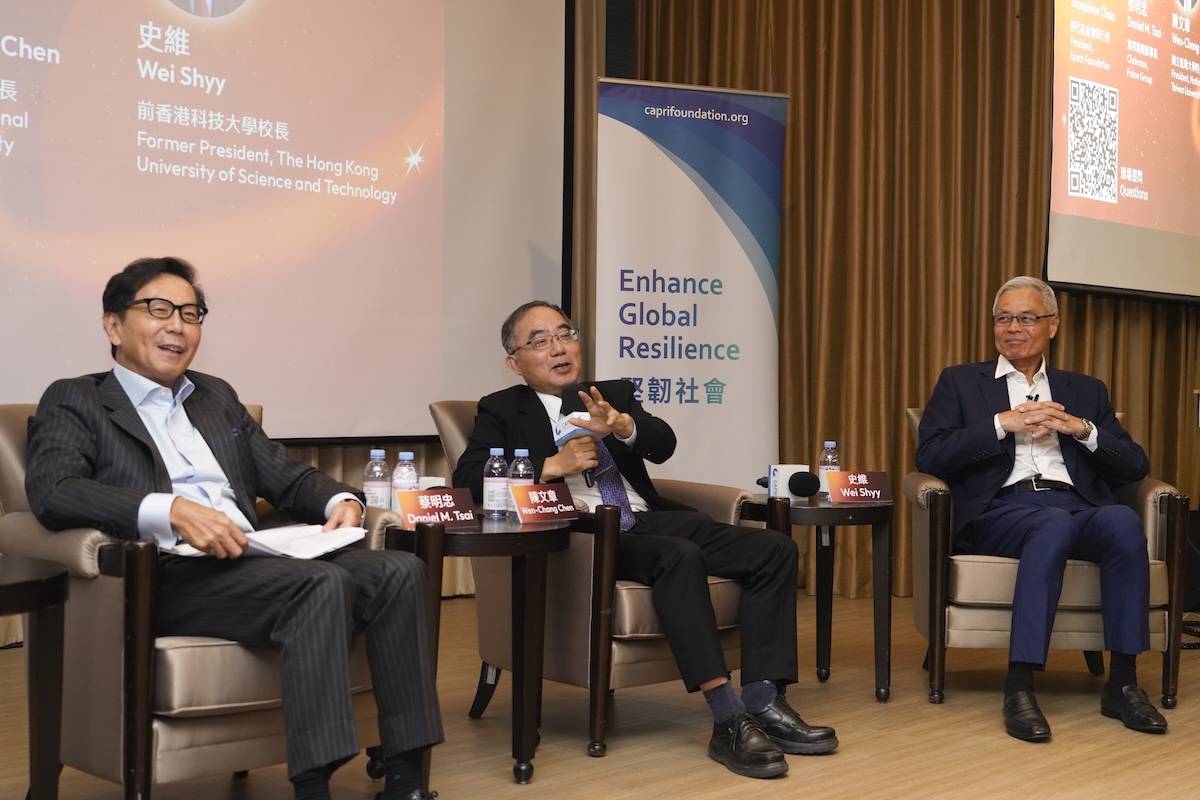
Daniel M. Tsai, Wen-chang Chen, and Wei Shyy at National Taiwan University, March 27, 2024.
CAPRI actively connects with students and new graduates through talent programs at local and international universities. Student delegations visit our office to learn about our research and discuss policy topics. We also engage with students at Taipei Wego Private Senior High School, inspiring early interest in public policy and regional resilience among tomorrow’s leaders.
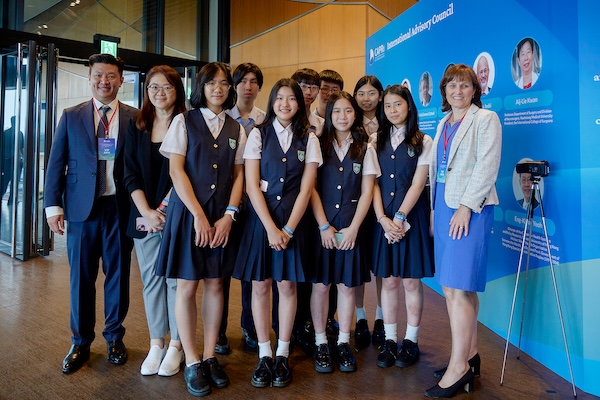
Alex Lee (left) and Barbara L. Cammarata (right) with students of Taipei Wego Private Senior High School, May 6, 2024.
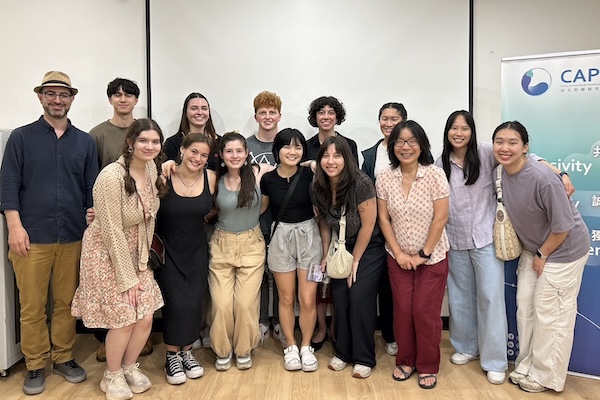
Students from Northeastern University visit NPO Hub Taipei, May 21, 2024.

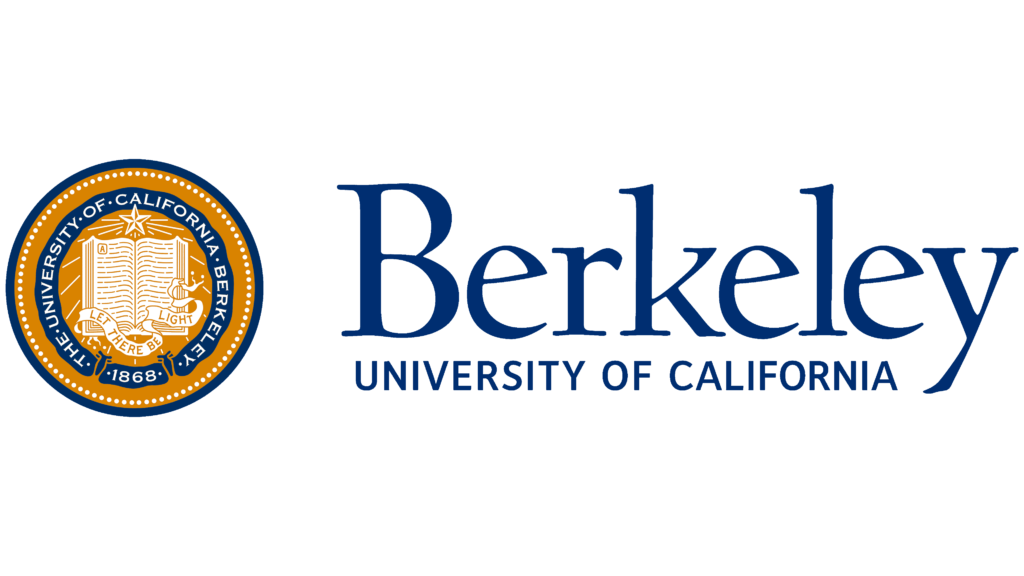
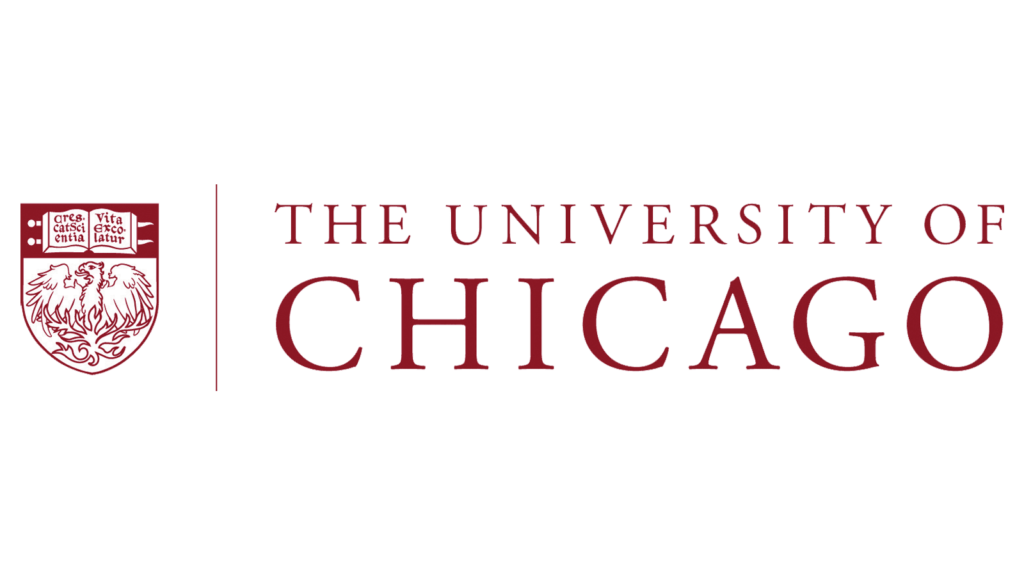


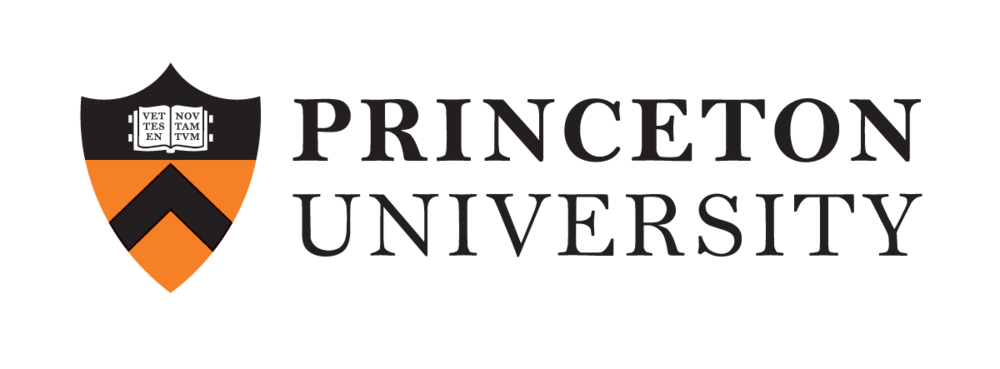



CAPRI’s Director of Engagement Siwei Huang argued that Asian economies were among the first to recognize the risk of overdependence on China, and policymakers across the Pacific need to coordinate their policy responses. He highlighted the need for resilient partnerships in the Asia Pacific to navigate economic derisking amid US–China rivalry, arguing for the creation of a formal channel for businesses in this region to communicate their concerns directly with policymakers in Washington.
In this event co-organized by the Karsh Institute of Democracy, McIntire School Center for Global Commerce, and UVA Club of London, Syaru Shirley Lin joined a discussion with Martin Wolf from the Financial Times as well as UVA’s Melody Barnes, Peter Maillet, and Nicole Thorne Jenkins. They discussed trends, strategies, and ideas shaping the future of democratic capitalism.
In particular, Prof. Lin highlighted how the Asia Pacific’s economic growth coexists with varying degrees of democratic governance. She also noted the region’s ongoing political shifts, where economic prosperity does not always translate into stronger democratic institutions.

Experts discussing trends in democratic capitalism in London, June 19, 2024. From left: Peter Maillet, Melody Barnes, Syaru Shirley Lin, and Martin Wolf
Prof. Chenggang Xu, Senior Research Scholar at the Stanford Center on China’s Economy and Institutions, visited CAPRI to discuss ideas in his latest book, Institutional Genes: The Origins of China’s Institutions and Totalitarianism. Prof. Xu drew parallels between China and the Soviet Union’s economic development, explored China’s economic trajectory, and dissected the institutional roots of China’s current challenges.
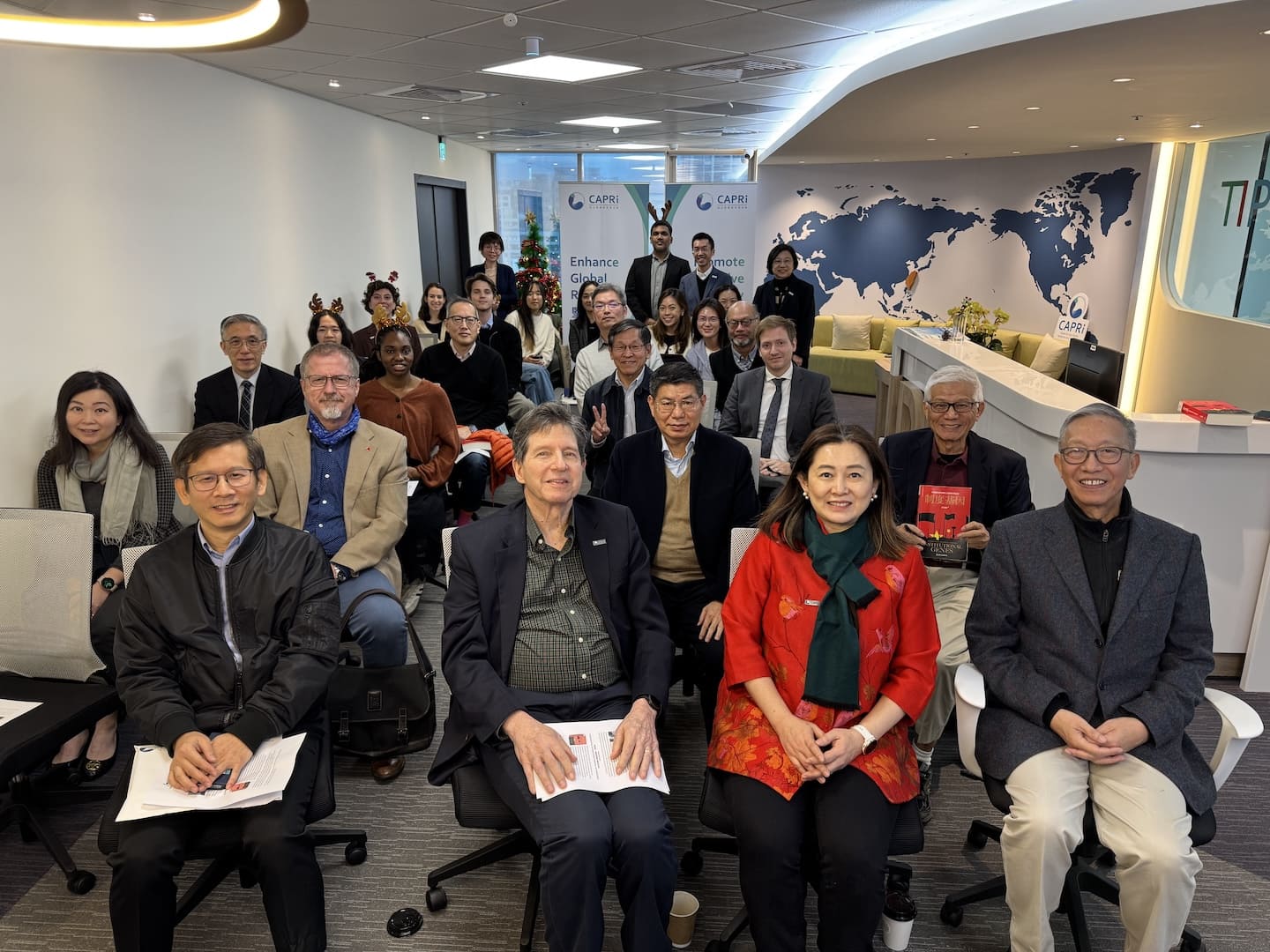
Steve Huang (front, far left) and Chenggang Xu (front, far right) with CAPRI board members, staff, and guests at CAPRI office, December 23, 2024.
CAPRI hosted a webinar in collaboration with the Brookings Institution on the opportunities and challenges facing Taiwan’s economy. Moderated by Ryan Hass of the Brookings Institution, the discussion featured Syaru Shirley Lin, CAPRI board member Alicia García Herrero, and Brookings’ nonresident senior fellow Richard Bush. The panelists commented on the Chinese market, underscoring the urgent need for diversification and new ways of cultivating talent.
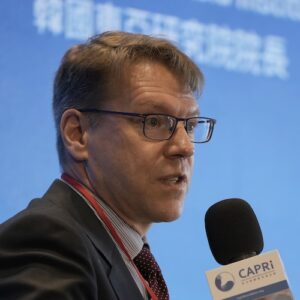
CAPRI entered 2024 by showcasing our expertise on Taiwan. As the global spotlight focused on the island’s pivotal general election, CAPRI experts offered insights and analysis of what Taiwan’s internal policy debates mean for the world.
Amid US–China decoupling, Taiwan faces mounting economic uncertainty. Stronger regional collaboration will be crucial for the long-term resilience of both Taiwan and the Asia Pacific.
On the eve of Taiwan’s 2024 election, voters are reckoning with not only geopolitical pressure but also the deeper issue of preserving their identity and democratic values in an increasingly unstable world.
Syaru Shirley Lin discussed the challenges faced by Taiwan’s newly elected President Lai Ching-te’s weaker mandate than that of his predecessor, including shifts in the US–China–Taiwan relationship as well as in the island’s domestic policy and economic pressures.
The new administration will propose higher defense spending and security ties with the US. However, very little may be accomplished because of deep inter-party divisions.
The January 2024 elections resulted in a divided government, which will require political compromise within the legislature and greater inclusivity for policymaking to to be effective for the next 4 years.
Taiwan’s divided government must balance between China and the US while its voters demand solutions to problems including stagnating wages, an aging population, and energy insecurity.
Celebrating another year of research and engagement at CAPRI, we held our second Annual Forum with policymakers, industry leaders, and scholars from around the world. Experts gathered in Taipei to offer their insights and analysis of the major issues the region is facing. Speakers, including Gov. James S. Gilmore III and Taiwan’s Vice President Bi-khim Hsiao, discussed opportunities for the American and Taiwanese leadership in the region, sustainable health and energy policies, artificial intelligence and economic interdependencies, and more resilient and innovative approaches to disaster management.
James S. Gilmore III, Former US Ambassador to the Organization for Security and Co-operation in Europe and 68th Governor of Virginia, emphasized that the US remains committed to leading the rules-based order and supporting its allies, including Taiwan, to uphold the free and open global system.
Vice President of the Republic of China (Taiwan) Bi-khim Hsiao highlighted Taiwan’s resilience and leadership as a model for the world, emphasizing its democratic strength, social progress, and economic transformation.
The Center for Asia-Pacific Resilience and Innovation USA Foundation, or CAPRI USA, is a 501(c)(3) organization registered in Delaware. As an independent affiliate of CAPRI in Taiwan, CAPRI USA promotes resilience through innovative policy by supporting nonpartisan research on current challenges affecting the US and Asia Pacific.
CAPRI USA was launched on February 14, 2024, in a public forum held at the University Virginia (UVA) on “Economic and Democratic Resilience in an Election Year: Taiwan and the United States in 2024.” This event brought together board members of CAPRI and CAPRI USA as well as experts from the Miller Center of Public Affairs at UVA. Drawing from the experiences of Taiwan and the US, the panelists discussed societal resilience on both sides of the Pacific and underlined the importance of a healthy economy as the basis of a resilient democracy. At a CAPRI USA event at Fudan University, Shanghai, co-hosted with the Miller Center and Fudan University’s Center for American Studies, Syaru Shirley Lin, Harry Harding, and Margaret Foster Riley joined experts from both institutions to explore the domestic factors influencing US–China foreign policymaking as well as evolving policy priorities amid the current global uncertainty.












